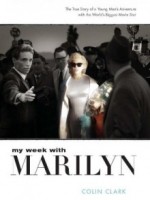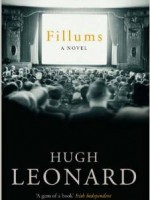(Published by Scribner)
 |
Irish directors such as Jim Sheridan and Neil Jordan are feted and celebrated world-wide. But Brian Desmond Hurst, Ireland’s most prolific film director, has been all but forgotten. A flamboyant bon viveur and man of enormous charm, Hurst’s most famous film was Scrooge, his 1951 version of Dickens’ A Christmas Carol.
With over 30 films to his credit, Hurst also helmed the definitive screen version of Synge’s Playboy of the Western World in 1962. Playboy was to be his last film although he never stopped trying to get other projects off the ground as Christopher Robbins discovered in the early Seventies.
A broke young journalist when he met Hurst, Robbins was commissioned – although never paid – by the director to write the screenplay for an ambitious biblical epic to star Laurence Olivier and Michael Redgrave. While their hoped-for Box Office Blockbuster never went into production, Robbins and Hurst became firm friends until Hurst’s death in 1986.
The Empress of Ireland is Robbins’ account of their “unusual friendship”. In what is little more than a selection of anecdotes, strung together, Robbins manages to captures the both Hurst’s charm and the inherent contradictions in his character. He was a Protestant Ulsterman who converted to Catholicism. A republican sympathiser who fought in the first World War and made propaganda films during second. A devout homosexual who was equally as devout in worship of his patron saint St Thérèse. A man, who for all his work, was almost forgotten until Robbins’ decided to write this tribute to his old friend.
An entertaining and often very funny memoir, The Empress of Ireland also touches on some of Hurst’s more serious experiences – his Belfast childhood and time fighting in Gallipoli – as well as his numerous lovers, from aristocrats to the Queen’s Royal Guards. Robbins is to be commended for this portrait of a genuinely fascinating man, which reveals almost as much about the writer as it does about his subject. ![]()


